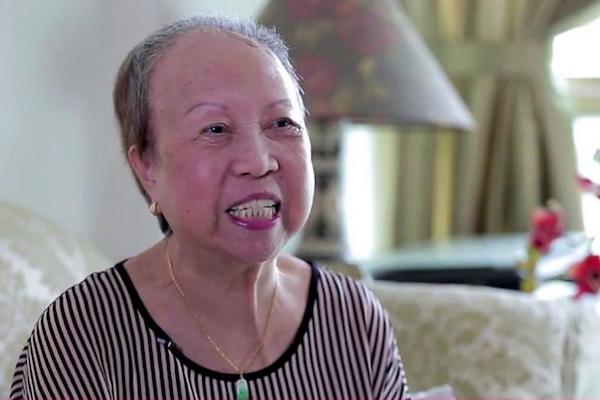Almost 10,000 have completed end-of-life arrangements through Advance Care Planning

By Foo Jie Ying
[A] former nurse, she has seen her fair share of patients dragging out their final days on life support.
She is also a cancer patient. When she felt her body “going downhill” in late 2014, the Singapore General Hospital (SGH) volunteer, who had heard of Advance Care Planning (ACP) decided to find out more about about it.
She later completed her ACP with the SGH social service department.
The mother of three told The New Paper: “When I fell quite ill then, I was thinking, good thing I had this thing done. I informed my children (about my ACP).”
ACP is a series of conversations about one’s wish for care and treatment in the event of difficult medical situations, when one becomes too ill and is unable to make decisions for oneself.
It can be conducted informally between individuals and their loved ones at home using a workbook by the Agency for Integrated Care (AIC), or formally with trained facilitators present.
Close to 10,000 people have completed formal ACPs to date, since AIC rolled it out in 2011.
The Ministry of Health will reach out to 25,000 Singaporeans over the next four years, said Minister of State Chee Hong Tatlast month.
ACP will also be expanded to different care settings, like specialist outpatient clinics and in primary care, he said.
There is reluctance to talk about death because most people think a medical crisis will not happen to them, said Mr Mark Lin, who started the Good Death project to encourage early end-of-life planning.
The deputy director of Special Projects (Eldercare) at charity Montfort Care told TNP: “The idea of talking about planning for situations if anything happens to yourself can be quite a taboo.”
Madam Jee’s husband is one such example.
The couple had approached SGH’s social service department together, but unlike her, he refused to do an ACP because it is “pantang” (Malay for taboo).
But for Madam Jee, who battled breast cancer in 1998 and lung cancer in 2015, and was diagnosed with Stage 4 brain cancer last year, conversations about death are a matter of pragmatism.
“For me, I’m doing this partly for the sake of my children. I’m a cancer patient. For cancer patients in the terminal stage, it’s very hard to recover because the cancer cells are eating the body up.
“I don’t want my children to feel guilty for suggesting to let me go in peace instead of putting me on artificial nutrition to survive. It may sometimes stay with them, with them thinking ‘I shouldn’t have done that’,” she told TNP.
With her funeral arrangements made, the Muslim also does not have to worry about her three US-based children being unable to rush back in time for her burial, which must be done as soon as possible..
While it is still not easy to talk about end-of-life issues, AIC deputy chief executive Wong Kirk Chuan told TNP he hopes to overcome this by working with partners like the Singapore Hospice Council to raise awareness on these issues.
Instead of waiting for a medical crisis, Dr Wong encouraged early ACP conversations, which offer peace of mind.
Mr Lin, whose youngest clients include a 38-year-old couple, agreed. He said: “The whole point of the ACP is not what you put on the document, although it is a formal record of your wishes. It’s about the process of talking about such things.
“ACP is like a health booklet that follows you as you age. It’s something you have to keep updating.”
Complete Article HERE!
